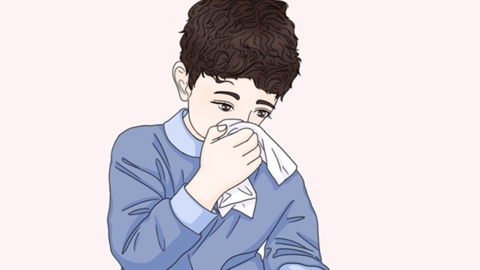What causes zinc and iron deficiencies in children, and what should be done?
Generally, zinc and iron deficiencies in children may be caused by rapid growth and development, an unreasonable diet structure, diarrhea, malabsorption syndrome, congenital transferrin deficiency, and other factors. Treatment options include general interventions and medication therapy, under a doctor's guidance. If any discomfort occurs, timely medical consultation is recommended. A detailed explanation is as follows:

1. Rapid Growth and Development
Children experiencing rapid growth and development have an increased demand for trace elements such as zinc and iron. During periods like infancy and adolescence, when physical growth is accelerated and metabolism is active, the consumption of zinc and iron increases accordingly. If sufficient zinc and iron cannot be supplemented through daily diet, deficiency symptoms may occur. Age-appropriate complementary foods should be introduced, and foods rich in zinc, such as seafood, nuts, and legumes, should be included in the diet.
2. Unreasonable Diet Structure
If children have habits of picky eating or food preference, refusing to consume foods rich in zinc and iron, such as meat, eggs, and vegetables, it may lead to insufficient intake of these nutrients. It is important to cultivate good eating habits in children and provide a diversified diet to avoid a monotonous dietary pattern.
3. Diarrhea
Diarrhea caused by viral or bacterial infections may damage the intestinal mucosa and impair digestion and absorption functions, potentially reducing the absorption of zinc and iron. Additionally, significant amounts of nutrients are excreted through feces, which may lead to zinc and iron deficiencies in children. Symptoms such as abdominal pain and vomiting may also occur. Patients may use medications like Cefixime granules, Amoxicillin and Clavulanate Potassium dry suspension, and Bifidobacterium Quadruple Live Tablets under medical advice to aid treatment.
4. Malabsorption Syndrome
Malabsorption syndrome may be caused by insufficient pancreatic secretion, physiological or biochemical defects, and other factors. This condition impairs digestion and absorption functions in the small intestine, preventing normal absorption of nutrients, which are excreted through feces, potentially triggering intolerance and autoimmune diseases, thus affecting the absorption of zinc and iron. Symptoms such as weight loss and malnutrition may also occur. Patients may take medications such as multivitamin tablets, Calcium Carbonate and Vitamin D3 granules, and Prednisone tablets under a doctor's guidance for treatment.
5. Congenital Transferrin Deficiency
Congenital transferrin deficiency is caused by gene mutations that lead to reduced transferrin synthesis or functional abnormalities. Transferrin is responsible for transporting iron, and its dysfunction prevents iron from being transported normally to tissues throughout the body, resulting in severe iron deficiency. Symptoms such as significant growth and developmental delays and intellectual disability may also occur. Patients may receive treatment with medications such as Iron Sucrose Injection, Recombinant Human Erythropoietin Injection, and Calcium Folinate Injection, as advised by a physician.
In daily life, regular health check-ups for children are recommended to monitor trace element levels, and attention should be paid to food hygiene to prevent intestinal infections.








